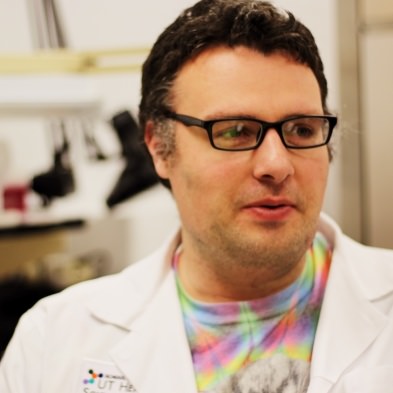Cutting Mental Corners
Dr. Jonathan Berman talks about mistakes in thinking that even scientists make.
 The most potent tool on a scientist’s bench is her brain. Not the one in the jar, the one in her head. A byproduct of that that brain is a mind with the potential to use the process of successive attempted falsification and hypothesis testing that is the scientific method—or to take shortcuts.
The most potent tool on a scientist’s bench is her brain. Not the one in the jar, the one in her head. A byproduct of that that brain is a mind with the potential to use the process of successive attempted falsification and hypothesis testing that is the scientific method—or to take shortcuts.
Usually the mind takes shortcuts. It substitutes easy heuristics (rules of thumb) for difficult or intense thinking or tasks. It happens all the time, even to scientists, and these heuristics are the quickest way to make mistakes, both in our science and in our everyday lives.
Consider a scenario: you take refuge in a dark and abandoned house belonging to a stranger at night during a thunderstorm. To your knowledge you are alone. As you enter the door slams shut behind you with a loud enough bang to trigger your flight or flight response. What caused the door to slam? To some, a pressure differential caused by Bernoulli effect from the wind from the thunderstorm would explain the door moving. To others a ghost seems a likely explanation. Really, you don’t know what caused the door to slam. Filling the gap in your knowledge with “I don’t know what it is therefore it’s a ghost,” is a kind of shortcut that increases the ignorance in the world.
 Thinking about probabilities also presents a challenge to our intuitions. A famous example asks us to imagine a woman who is young, was active in the anti-nuclear demonstrations in college, and was concerned with issues of social justice. Is it more probable that she works at a bank, or that she works at a bank and is a feminist? Although most answer the latter, most are wrong. If the odds of her working at a bank are 80 percent, and the odds of her being a feminist are 99 percent, 80 percent *99 percent is always lower than 80 percent.
Thinking about probabilities also presents a challenge to our intuitions. A famous example asks us to imagine a woman who is young, was active in the anti-nuclear demonstrations in college, and was concerned with issues of social justice. Is it more probable that she works at a bank, or that she works at a bank and is a feminist? Although most answer the latter, most are wrong. If the odds of her working at a bank are 80 percent, and the odds of her being a feminist are 99 percent, 80 percent *99 percent is always lower than 80 percent.
Similarly our minds are bad at many other tasks. We accept or reject arguments based on our emotions toward the arguer.
Everyone knows that we consider popularity when determining the truth of an idea. We accept truths based on authority, and on the basis of being ancient wisdom. We cherry pick data to suit match our preexisting beliefs. We confuse what is true, with what ought to be true. We shift the burden of proof from the claimant. We assume causation from correlation. We assume that our expertise in science makes us experts in unrelated areas. We trust faulty and subjective memories. We only publish positive results.
Luckily we have a tool that developed as a means specifically to bypass our faulty, shortcut prone minds. Returning to the method of science, it arose over centuries, shaped by many minds as a means not to establish hard truths, but to bypass our own biases when examining the world. Our most potent tools are our brains, but they are also the tools that must be used with the most caution.
 Dr. Jonathan Berman is a postdoc in the Department of Physiology. The “Beyond The Bench” series features articles written by students and postdoctoral fellows at The University of Texas Health Science Center San Antonio.
Dr. Jonathan Berman is a postdoc in the Department of Physiology. The “Beyond The Bench” series features articles written by students and postdoctoral fellows at The University of Texas Health Science Center San Antonio.
